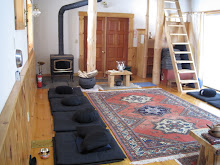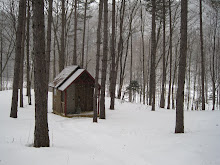As my friend says, “It’s one of those cases where, when two elephants fight, the grass suffers.” Just a small circle of plastic chairs in a room, we sit and open up for each other. The images echo when I close my eyes tonight.
-An angry mob stops a man trying to get home to check on his family. They cane him, his ear pressed to the ground. He is from the “wrong” ethnic group.
-A two-year-old child hit by a stray bullet. The neighbor is beside herself, hearing the family cry out. Mourning begins.
-My proud friend—always laughing. Her eyes fill with tears. She is powerless—afraid to stand upright in her house for two days because of the constant gunfire that engulfs her home.
-A 9 year old boy sees what a police officer is doing to someone. Mistrust taking over his openness, he begs not to leave home, even now that it is over. His mother, imploring: “What can I tell him?”
-A friend of a friend. Officer killed in the line of duty, a good man trying to calm a riot.
-14 year old escapee from forced prostitution is in danger again. Those who hurt her before know she is old enough to remember them, and she is now replaced on the list of police priorities. Now there is no possibility of justice.
People speak out, quietly—tentatively. These are stories of the North, stories of the past, stories of somewhere else—and yet they happened here, to this small circle of people in plastic chairs. We stand up to go. We thank each other for being alive and ok and—sometimes—we smile and joke as though nothing passed.
People today speak in small circles, or in pairs, to friends. They speak quietly of the possibility that this is pre-election manipulation to get rid of the enemies. They speak of the tricks of leaders, who mention the shape of people’s noses in a radio address, and incite anger that gets played out on the street.
They speak of the powerful, now seeking vengeance. Of the silencing of media outlets. Of the imprisonment of old enemies. Of the plainclothes spying on peaceful gatherings.
Even back at my, unstoppable organization, we cancelled our drama discussions tomorrow. The whole substance of our work is to gather people together to talk about different types of power—and, ultimately, how to share it. We silenced the discussion the communities need most, because we can’t control where that discussion leads, or how it is interpreted.
We ask: How afraid do we need to be? How much can we still achieve? No one wants to be manipulated into submission—into not speaking up.
That is not the nature of the people I know. Theirs is the nature of courage—the nature of everyday rebellions of hope.
Today, they remind me of a friend in Liberia, one of so many who simply refused to be controlled—who joined together from every ethnic group, refusing to hate each other. Instead, they prayed in market places, and visited, in turn, each warlord and demand him—as his mothers, his sisters, his wives—to stop.
They remind me of my friends in Sierra Leone who reached out in compassion to neighbors and friends—and refused to let the community die, even when it was safer to stay shut up in the house.
Love as an act of rebellion, persistent as water digging a canyon. It wins, quietly--eventually.
Subscribe to:
Post Comments (Atom)





No comments:
Post a Comment